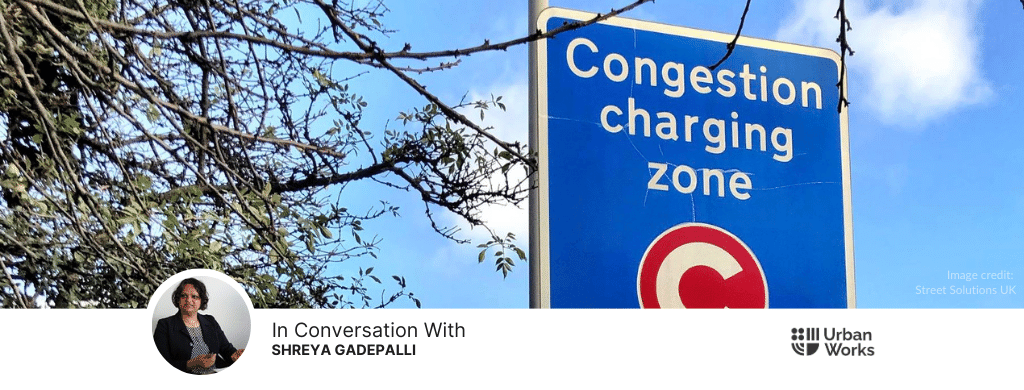In the wake of the proposal to introduce Congestion tax in Bengaluru, we present some answers about the famous regulation that has worked for cities such as London, Singapore and Stockholm. Could it work for an Indian city like Bengaluru? Here is an excerpt of a chat with UWI Founder Shreya Gadepalli.
Does Bengaluru make a case for congestion taxing as proposed by its planning department?
Congestion pricing can make the notoriously congested roads of Bengaluru traffic-free. Those willing to pay get a traffic-free way to get to their destinations. The traffic-free roads also make way for swift bus services, giving those unwilling or unable to pay a reliable alternative. It is a win-win for all.
Does it have well-networked public transport to draw the car owners?
Bengaluru has more buses per capita than any other Indian city, but those buses are stuck in terrible car traffic. The congestion fee would discourage many motorists from using the roads during peak hours, allowing buses to run swiftly. The fee would also provide a perennial source of revenue to invest in more buses, better buses, that can attract motorists. Again, it’s a win-win.
How can the administration build public support for this measure?
New charges are bound to be seen negatively by those having to pay. Car users have a stronger voice than people riding buses, even though the latter is a much larger group. The key to winning hearts is showing how everyone’s life improves. Motorists who are willing to pay get a traffic-free way. Those unwilling or unable to pay get better bus services. The government must explicitly commit to improving and expanding bus services. An ad campaign that tugs at people’s hearts is the key to success.
Can it get political support?
Winning political support is similar to garnering public support. With clear data and an easy-to-understand plan, the administration must show that this initiative is a win-win for all. With the support of a few political champions and the backing of key influencers from the industry and other sectors, wider support across political lines can be built.
What form of road pricing should the London or the Singapore model follow?
The Singapore model of road pricing is better. London has a less effective model in which motorists pay a flat fee to enter an area prone to congestion. Once inside, there is no limit to how much they drive. The Singapore model charges motorists a fee for each section of road they use. The fee is proportional to demand. The greater the demand, the higher the fee. This model manages to keep all roads free of congestion. Also, the technology deployed in Singapore is better than in London.
Can congestion pricing reduce the number of cars on Indian roads?
Cities globally that have deployed congestion pricing have consistently managed to control the number of cars on their road1. In London, cars entering the congestion pricing zone dropped by 33%, whereas bus ridership shot up by 38%. Average traffic speed increased by 30%. Through electronic road pricing, Singapore has managed to keep the average traffic speed on urban roads at 20-30 kmph and speeds on expressways at 45-65 kmph.
Is it time other metro cities — Mumbai, Delhi, Chennai, Hyderabad — implement congestion pricing?
It is high time that all metro cities in India implement congestion pricing. A few years ago, UrbanWorks did a pathbreaking study on implementing congestion pricing in Mumbai, providing a step-by-step process of how the city can implement congestion pricing. UrbanWorks also developed an illustrated guide that explains the basics of congestion pricing and how to implement it.
If not connection tax, what are the other demand-side management measures cities could take to reduce road congestion?
Congestion pricing is a direct demand-management tool to cut traffic on congested roads. Parking pricing and control on the total amount of parking available is another key demand-management tool that cities must immediately deploy. Putting a cap on the number of registered vehicles and increasing road taxes are other demand-management measures but are not as effective at controlling traffic as road and parking pricing.
It is natural for Bengaluru commuters to feel anxious about a new regulation. If you have comments or questions on Congestion Tax in Bengaluru, send them to us at hello@urbanworks.in


